#chery
Report: China’s Chery Considers U.S. Market Yet Again
Chinese state-owned automaker Chery is reportedly still looking to the United States as a possible point of expansion. But this isn’t the first time the brand has said so.
Chery had plans to break into our market back in 2005 and supposedly had things lined up to import a limited supply of its Exeed crossover in 2020 before the world went haywire. Things have been left intentionally vague this time around, with the company only saying that it would like to move product here eventually.
Don't Bet on Seeing Chinese Brands in the U.S. Anytime Soon
Over the past decade, regular reports that Chinese automakers were readying a major push into the North American market became commonplace. We started seeing them move out of trade show basements to take up some of the most desirable real estate on the main floor. While some of the product clearly wasn’t yet up to snuff, one could imagine budget-focused products flooding the U.S. and Canada after a few years of polish. However, the last time that seemed like a likely scenario was 2018.
Chinese brands are still trying to break into the untapped North American market; some even have physical office space set up within the United States. However, Sino-American relations have soured dramatically over the past few years, and new financial hurdles have made wrangling a new market extremely difficult.
Vantas - a Brand Worth Knowing About?
It sounds like a European-Australian air carrier, but Vantas is also the name of a new Chinese automotive brand envisioned for the North American market.
The distributor behind the proposed brand should be familiar: California’s HAAH Automotive Holdings, which also plans to introduce the Chinese Zotye brand to the United States. This time, the introduction is an upscale one, with HAAH and China’s Chery Automobile signing a technical cooperation agreement to deliver a new brand, and a new SUV, to U.S. consumers.
Daimler, BAIC Investing $735 Million Into Chinese EV Production Pretty Much Out of Necessity
Daimler AG is dumping half of a 5 billion yuan sum, or 735 million dollars, into China as part of a joint venture with BAIC Motor Corp. Together, the companies plan to establish the groundwork for competent EV production in the region — meaning a good ol’ fashioned battery factory.
The bill is split between the two firms, as China requires every foreign automaker to partner with a domestic one to do business within the country. The new factory will be a product of Beijing Benz Automotive, a blandly named limited liability company created to further Mercedes’ interest within the country and bolster its EV production capabilities globally.
Who Will Build Sergio's Next Dodge Dart and Chrysler 200?
FCA’s sweater-in-chief Sergio Marchionne has a plan to turn around the debt-laden and ailing automaker: stop building cars that lose money. That sounds like common sense, so long as oil prices stay low and the demand for trucks, SUVs and crossovers remains high.
But that plan introduces a new set of problems, chief among them the fact that ditching the car market leaves FCA exceptionally exposed to future volatility in oil prices. Crude prices affect prices at the pump, which affects the demand for certain types of vehicles. Sergio is betting oil prices will stay low by focusing on vehicles with ever-increasing price tags and ever-growing gas tanks.
Still, there will always be some demand for small cars. It was true in 1950 and it is true today. So what will Mr. Sweater do to meet that demand? Simple: he’ll buy those vehicles from another automaker and badge engineer them the old-fashioned way.
China's Qoros Earns 5-Star Crash Rating in Euro NCAP Testing
Automotive startup Qoros Auto Company has an interesting business model. Backed with the manufacturing know how of China’s Chery corporation, and the funds of the Israel Corp. holding company, controlled by the Israeli Ofer family, Qoros is designing cars in Europe to be sold in Europe, but built in China.
Chinese Car Dealers Report Inventories Remain High
According the the China Automobile Dealers Association, despite efforts by car makers to reduce inventories, Chinese domestic brand dealers still had 49 days worth of supply in June, a figure that would be considered decent in North America, where two months is the norm. But it’s a matter of concern in China, where normal dealer inventories are 24 to 36 days. That figure is an improvement over the 61 days of supply at the end of May.
Detroit Jury Awards Millions In Malcolm Bricklin Fraud Suit Regarding Chery/Qoros JV
Visionary Vehicles’ envisioned dealership
Malcolm Bricklin’s company, V Cars (formerly Visionary Vehicles), was awarded $2 million by a Detroit jury in U.S. District court. The lawsuit was filed after Bricklin’s failed effort to set up a joint venture with Chery to produce Chinese made cars for the North American market. The jury ruled that KCA Engineering, a company founded by former Visionary executive Dennis Gore while he was still an employee of Bricklin’s startup, had committed fraud as well as a number of other misdeeds. When Gore was first hired by Visionary, Bricklin said it was because of his expertise with Asian car manufacturers.
EXCLUSIVE: Bernstein Research Literally Dissects Chinese Cars, Auto Industry In 200-Page Report
Max Warburton and his team. Warburton, of Bernstein Research, assembled a team to interview over 40 auto executives in China (both Chinese and foreign-born) and even bought two Chinese vehicles from Geely and Great Wall. Warburton had them shipped to Europe, where they were taken to a test track, driven extensively and then taken apart by engineers and automotive consultants. And it was far from pretty.
The Chinese Are Coming! Seriously Now
Qoros 3 Sedan
At the Geneva auto show, the long awaited Chinese attack on the embattled European auto market will finally get started in earnest – with the help of German and Austrian engineers, and money from Israel. Qoros is a joint venture partnership between China’s Chery and the Israel Corporation. Qoros wants to be to Chery what Lexus is to Toyota and Acura to Honda. It also wants to be the key that unlocks foreign volume markets.
Chinese Brand Binge Claims First Victim
A year ago, we wrote about China’s suicidal brand binge:
“If Chinese carmakers will do what they say – and they appear to be utterly committed – then China will soon wallow in a sea of car brands nobody has ever heard of, and nobody will ever be able to remember. Sometimes, it feels as if it is the long-term goal to give each and every of the 1.3 billion Chinese his or her individual car brand.”
A year later, the brand disease claims its first victim, and it is Chery.
JLR Approved To Make Cars In China. Or Maybe Not
Being at odds with its number one trading partner Japan at the moment, China shows that it doesn’t have to be the big bully, and that it can make nice with other former enemies if it feels like it. China gave a surprising regulatory nod to a joint venture between Tata-owned Jaguar Land Rover and Chery. If you think they were long married, then you are right. They said yes a while ago. However, in China, a joint venture is not really a joint venture unless the National Development and Reform Commission (and sundry other bureaucracies) have given their nod, and did put their chop on the contract.
Chery Seeks Permission From Big Brother For Jaguar Land Rover Joint Venture
Chery has asked the Chinese government for its blessing regarding a joint venture with Jaguar Land Rover worth $1.9 billion.
Subaru Shut Out Of China, Pledges Allegiance To The Flag
With a planned Chinese joint-venture between Chery and Subaru now really, honestly dead in the water, Subaru will look to the United States for sales growth, while importing cars to China for the next few years.
Chinese Government Denies Subaru Joint Venture. Again?
Just-Auto issued a breathless press release with the hot news that the nasty Chinese government has said no to a joint venture between Japan’s Subaru and China’s Chery. If this sounds like deja vu to you, then you are an ace analyst. Send your CV to just-auto.



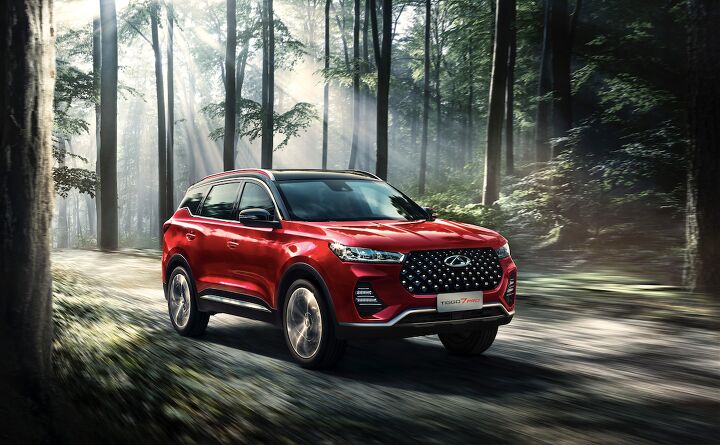

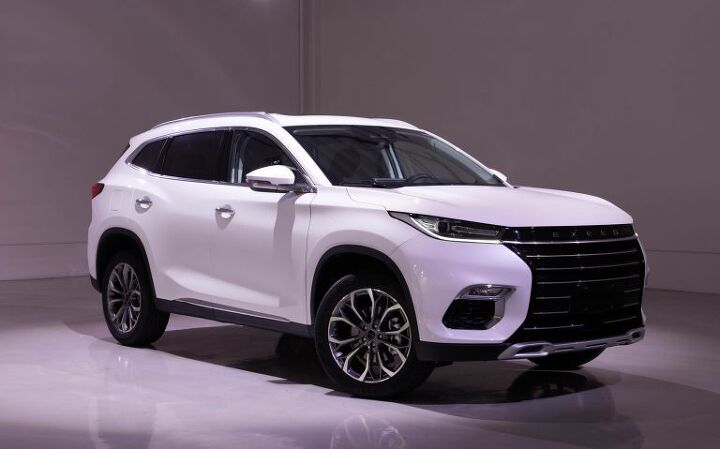


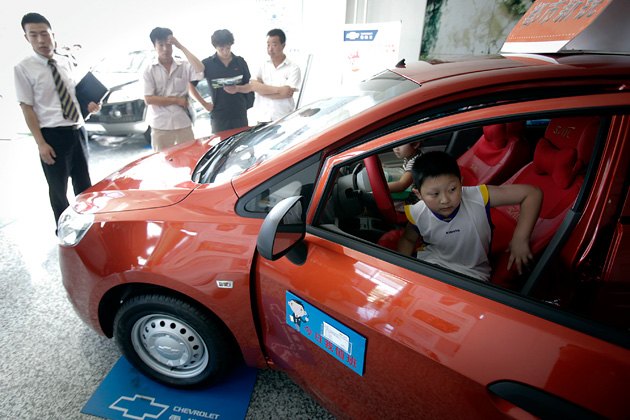

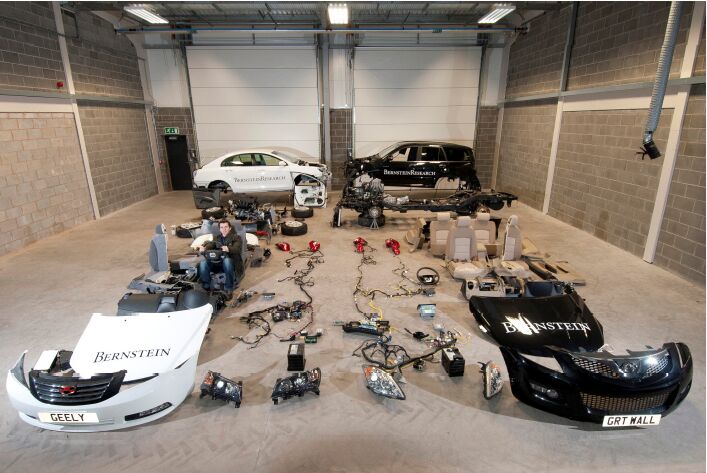
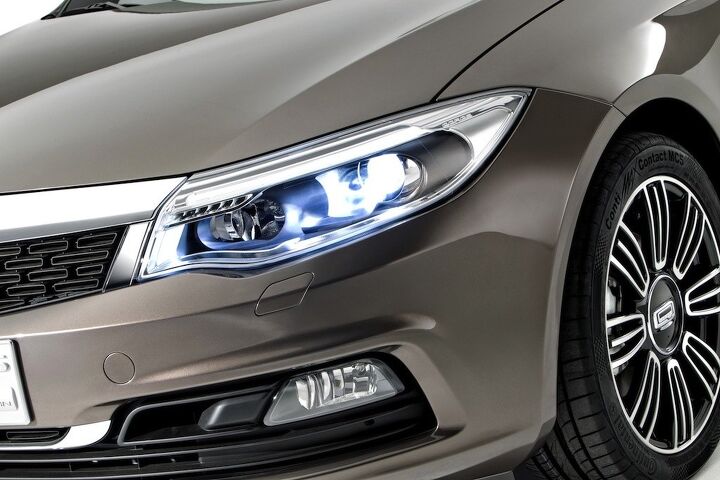
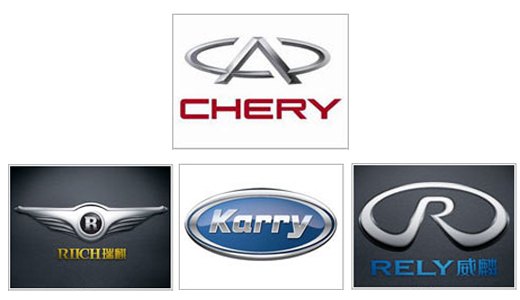

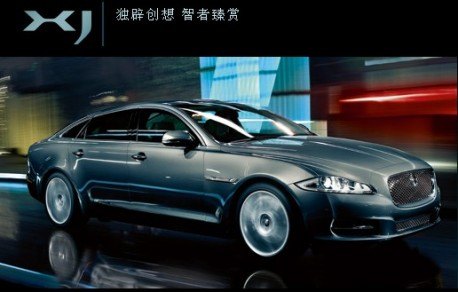
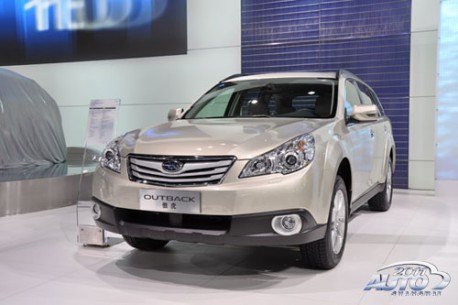
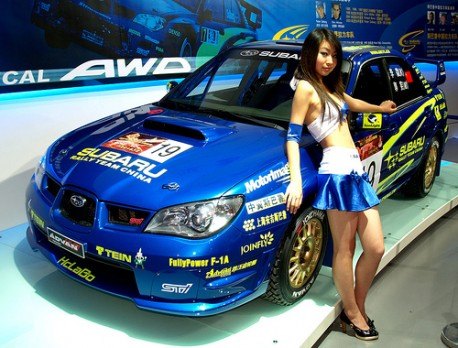












Recent Comments